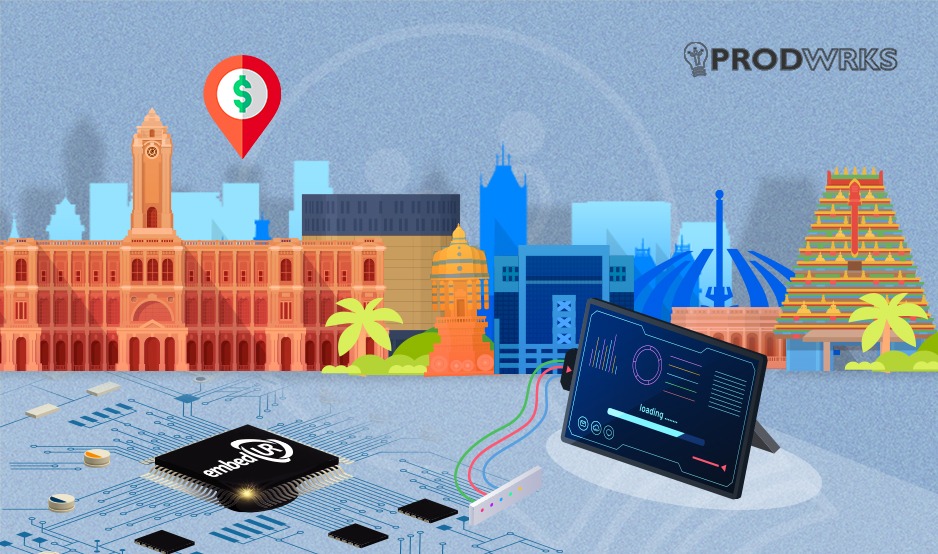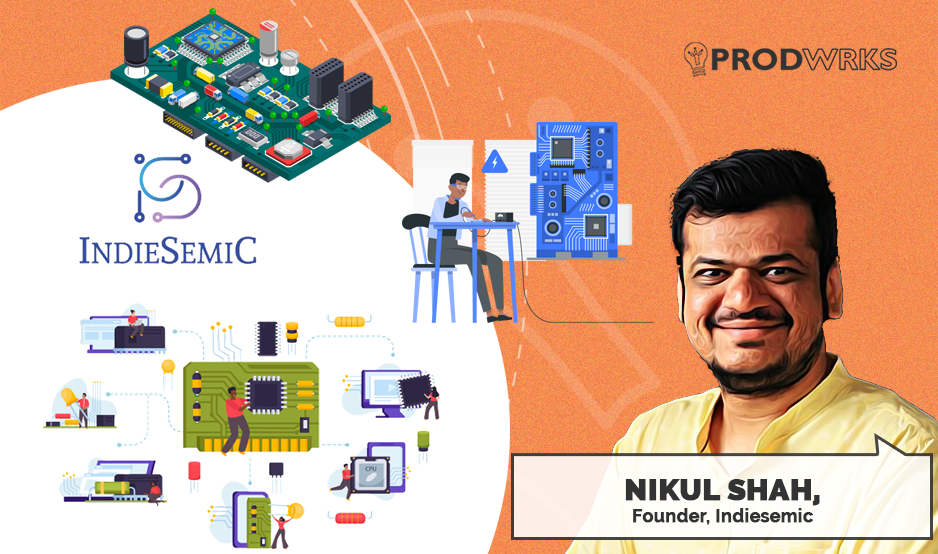
Silicon Valley-headquartered embedded technology company, embedUR, is making a significant investment of INR 500 crores in its Chennai operations, marking a substantial commitment to India’s growing tech ecosystem. As the first phase, embedUR will invest INR 100 crores in 2024.
This bold move is driven by a vision of accelerating growth and tapping into the immense potential of India’s engineering talent, coupled with the booming embedded systems market, says Rajesh C Subramaniam, the founder and CEO of embedUR.
In the last two years alone, the organization has invested over INR 150 crores in its Chennai facility as part of its commitment towards the India growth focus. Rajesh highlights that the company’s future investment will strengthen its expertise in new technologies such as AI and edge Computing, developing the infrastructure, accelerating innovation, expanding market outreach, and increasing headcount with Chennai as the focal point.
Read on to know more about embedUR and their plans for making Chennai an embedded systems hub.
The Future of embedUR: Why Chennai Matters
Founded in a garage in 2004, embedUR has since become a pioneering force in the embedded technology field with a strong foothold in the telecom and networking industry. Today, EmbedUR is recognized globally as an embedded systems expert, offering tailor-made solutions for complex connectivity, device management, and embedded software.
The company works with Fortune 500 giants, and every chip company in Silicon Valley, from Intel to ARM, is familiar with their capabilities. However, Rajesh feels that the next phase of growth is expected to happen in India, particularly in Chennai.
Rajesh Subramaniam emphasizes that Chennai holds a unique position in embedUR’s growth strategy and personally as well, having been born and brought up here. He cites several key reasons for this investment:
- Talent: Chennai boasts an incredible pool of engineering talent, trainable and adaptable to new technologies and processes.
- Experience: With 19 years of operations in Chennai, embedUR has built a wealth of experience in identifying the right talent from engineering colleges they have partnered with
- Diverse Verticals: The company’s extensive experience across various industry verticals enables them to support their customers’ global endeavors effectively. Through this strategic investment in Chennai, embedUR plans to support organizations across industries and help them bring cost-effective solutions to their customers. They want to focus on serving the growing Asian markets from India.
- Growth Opportunities: The Indian market is poised for unprecedented growth with the affordability of embedded systems and IoT technologies increasing. Chennai’s reputation as a manufacturing hub with great industrial infrastructure is an added plus.
Key Focus Areas for Investment
embedUR plans to utilize the investment to strengthen its capabilities and offerings further. The focus areas for investment include:
- AI and ML: The company intends to delve into TinyML, where machine learning is applied to low-cost, low-power devices.
- Edge Computing: embedUR aims to expand its reach in edge computing and edge analysis, focusing on touch and sense devices.
- Cybersecurity: As the IoT landscape grows, cybersecurity becomes a key priority to protect against potential threats.
- Connectivity: The company aims to solve complex connectivity challenges with the forecasted increase in the IoT tech space, adoption of 5G technologies, and other interconnected devices in the mobility space including smart cars and tractors.
The investment will also support infrastructure development and expand marketing and branding outreach. With rapid growth on the horizon, the company anticipates doubling its workforce and expects to maintain a growth rate of 25% to 30%.
The Fall in Silicon Prices and Rise of Embedded Systems Market in India
According to Rajesh, the embedded systems market is set to grow by nearly 100 billion dollars in the next eight to ten years, with the fastest growth expected in the Asia Pacific region, especially in India. He reasons that the fall of silicon prices globally will fuel this rapid growth of embedded systems and solutions in the coming years as it cuts down on the “middleman.”
“Big service providers used to buy from a Nokia or an HP, and the trend is slowly moving away. Why? Because service providers want to control what is being deployed in their hardware solutions that go across the world. So they go directly to the manufacturer to procure hardware, they find a software partner like us who builds it exactly to their use case deploy the solution in the hardware,” explains Rajesh.
He reckons that it cuts “35% of the cost, and this trend is growing like crazy across the board.”
Another fundamental reason for the reduction in prices is the change in the status quo of chipset manufacturers in the Western world being challenged by semiconductor companies in Taiwan.
“They want to bring in the technology that the Western companies can offer and provide low-cost chipsets, which also means low-cost software and give you the same capability that was once held by the Western world. And we are working with those companies who want to bring those products to market.”
IoT and CGM Boom in India and APAC
Rajesh identifies tremendous opportunities opening up in the IoT segment, especially CGM (continuous glucose monitoring), with the fall in silicon prices. The fastest growth will be in Asia Pacific, “because that is where the consumption is,” says Rajesh.
“If the prices can come down, affordability index goes up, we believe there's going to be lot of consumption and a lot of growth, and APAC will register faster growth than the western part of the world.“
However Rajesh acknowledges that the prices for CGM in India and rest of APAC are still not affordable for the people living here.
“There are three major companies that sell CGM - Dexcom, Eversense and FreeStyle Libre. These small devices have bluetooth, analog interfaces, an enzymatic wire which plugs into your arm, and it helps to check your glucose levels. The price of this three years ago was unaffordable. It's still unaffordable in India, but in the US and Europe, almost 30 to 40 million of these devices are getting sold at $60 per piece, which is actually $120 a month, subsidized by the insurance companies.”
But Rajesh believes that five years from now, this technology is going to be affordable for each and every Indian with the fall in silicon prices, and embedUR is perfectly positioned to capitalize on this.
“There are cortisol sensors that are being developed, there are temperature sensors that are being developed, there are shoes that have sensors in them, and this wearables space is seeing unprecedented growth, and not everyone has the wherewithal to create complex connectivity solutions to manage all this. That's where we come in. We spent a lot of time the last few years helping customers in the US, and we want to make sure that we continue to build our team to be able to support more of this in India.”
The expansion in Chennai is a strategic move to tap into the emerging opportunities, and embedUR looks committed to working closely with the Indian government to design products, build software, and sell in India. The company’s journey in India is about realizing the full potential of Indian engineering talent and making India a significant hub for innovation and excellence in embedded technology.
embedUR’s investment in Chennai is not just about the growth of the company but also a testament to India’s growing prominence in the global technology landscape. As the embedded systems market continues to thrive, embedUR is positioning itself to lead the way in delivering cutting-edge solutions to the world’s most innovative industries. With their vision and substantial investment, they are making Chennai a vital part of this exciting journey.



